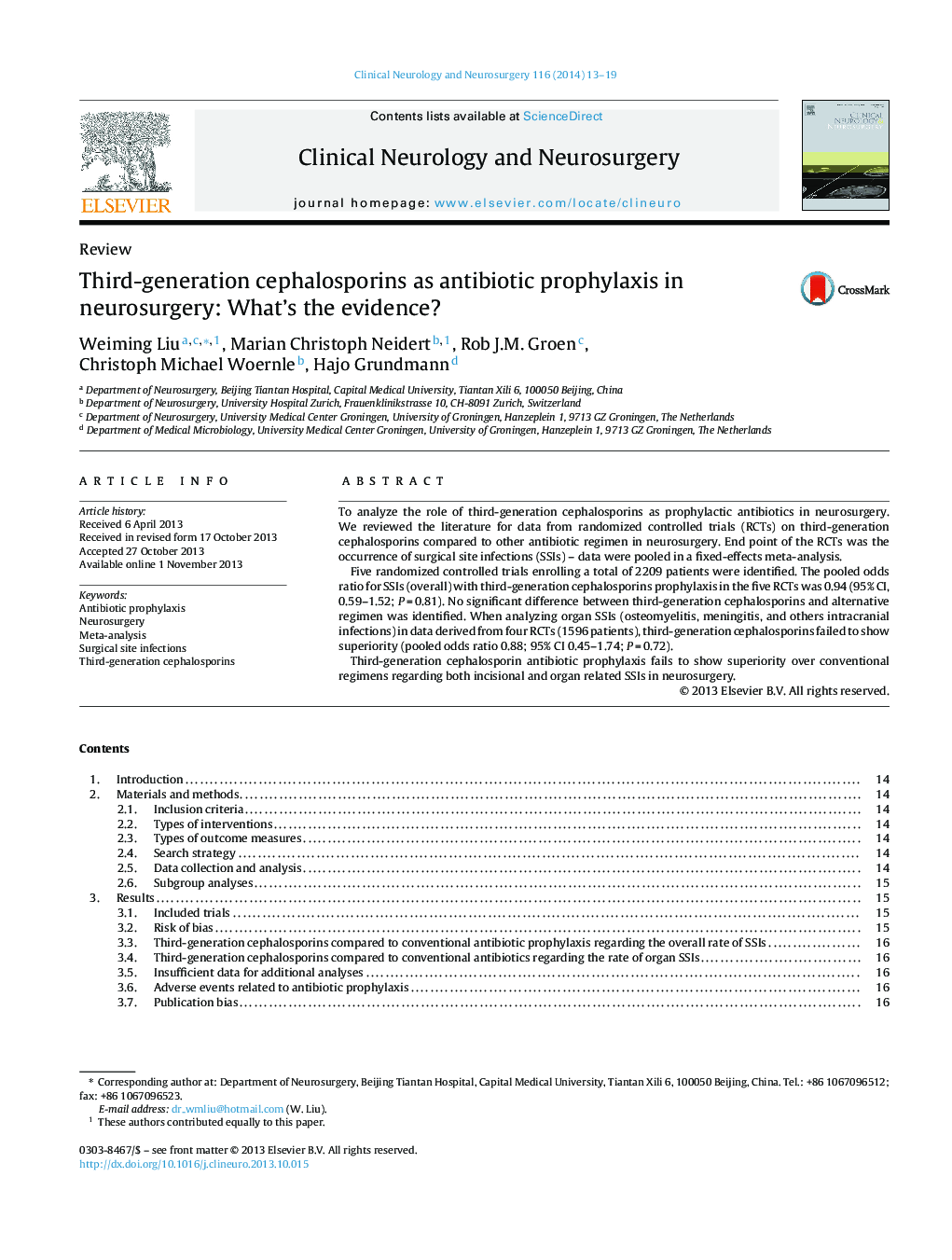| Article ID | Journal | Published Year | Pages | File Type |
|---|---|---|---|---|
| 3040365 | Clinical Neurology and Neurosurgery | 2014 | 7 Pages |
To analyze the role of third-generation cephalosporins as prophylactic antibiotics in neurosurgery. We reviewed the literature for data from randomized controlled trials (RCTs) on third-generation cephalosporins compared to other antibiotic regimen in neurosurgery. End point of the RCTs was the occurrence of surgical site infections (SSIs) – data were pooled in a fixed-effects meta-analysis.Five randomized controlled trials enrolling a total of 2209 patients were identified. The pooled odds ratio for SSIs (overall) with third-generation cephalosporins prophylaxis in the five RCTs was 0.94 (95% CI, 0.59–1.52; P = 0.81). No significant difference between third-generation cephalosporins and alternative regimen was identified. When analyzing organ SSIs (osteomyelitis, meningitis, and others intracranial infections) in data derived from four RCTs (1596 patients), third-generation cephalosporins failed to show superiority (pooled odds ratio 0.88; 95% CI 0.45–1.74; P = 0.72).Third-generation cephalosporin antibiotic prophylaxis fails to show superiority over conventional regimens regarding both incisional and organ related SSIs in neurosurgery.
